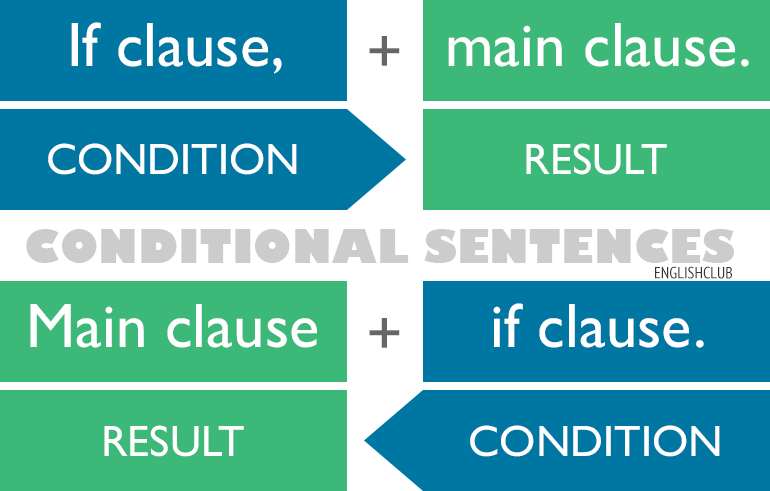We use conditionals to describe the result of something that might happen in the present or in the future.
They usually involve the use of ‘if’ statements. An if-clause expresses a condition, while the main clause expresses the result. Here’s a typical structure of all conditional sentences:



The Zero Conditional
Zero conditionals are used to talk about facts, such as scientific facts, or when the result of the condition is always true.
- If you heat ice, it melts.
[If + Present Simple, ….. + Present Simple]
The Present Simple is used in both clauses of the statement.
Conditional sentences can be used with other terms instead of ‘if’ such as ‘when’.
The use of ‘when’ also adds certainty to something happening.
- When the monsoon arrives, it floods the streets.
[When + Present Simple, ….+ Present Simple]
The First Conditional
Unlike the zero conditional that are generally or almost always true, the first conditional could be associated with possible situations or a possibility of something that is about to happen in the future.
This could be based on an event that is changing at present or could depend on other events that might happen in the future.
In this case, ‘will’ is used in the second clause of the statement.
Example 1:
- If my mother comes home tonight, I will take her out to dinner
Or
- If my other comes home tonight, I’ll take her out to dinner.
[If + Present Simple, ….. + will + infinitive]
In the above two conditional types, it is not important whether ‘if’ is placed in the first clause of the statement or the second clause. They mean the same thing and can be swapped in usage.
- If I go the market, I buy my groceries.
- I buy my groceries if I go to the market.
OR
- When I see my personal tutor, I discuss my problems with him.
- I discuss my problems with my personal tutor when I see him.
Let’s compare these two types of conditional sentences:



Here’s a great video from Papa Teach that explains all English conditionals:
See also: